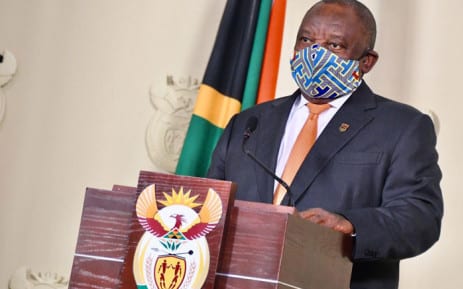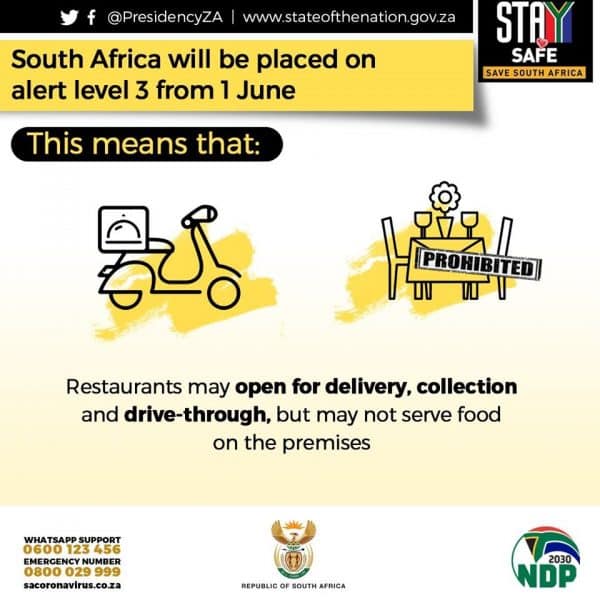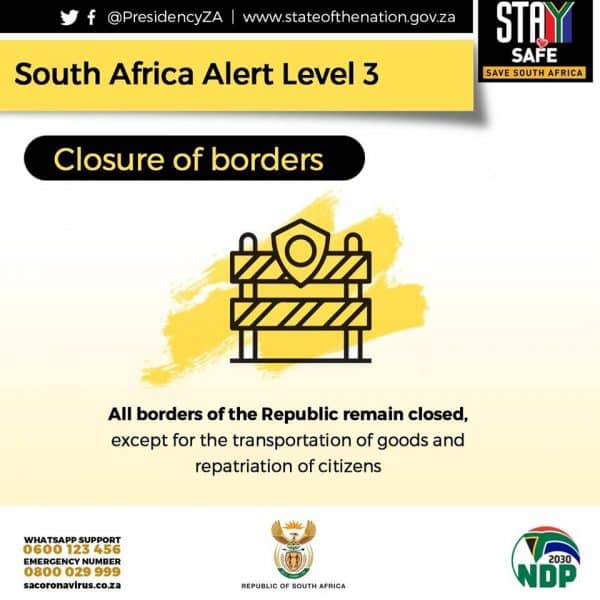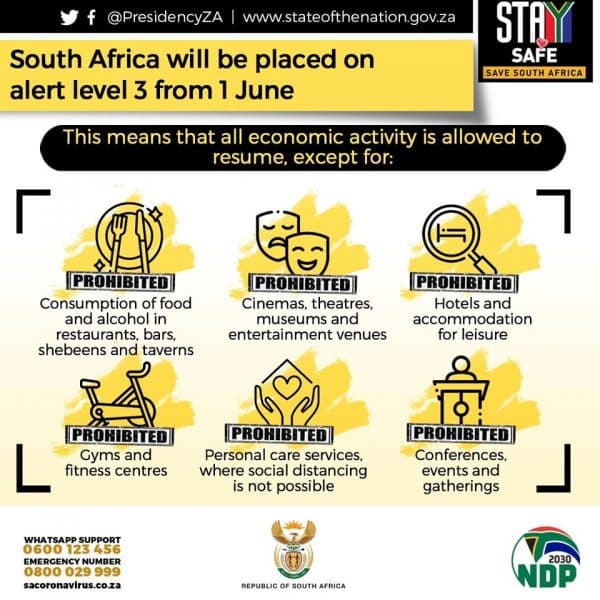
South Africa will be moving to lockdown level 3 on June 1, but the coronavirus will get much worse before it gets better, President Cyril Ramaphosa warned in an address to the nation on Sunday evening.
He also warned that some areas could go back to levels 4 or 5, depending on their progress.
Ramaphosa made the announcement while presenting the government’s risk-adjusted plan to curb the spread of the coronavirus pandemic in the country.
His address followed recent meetings of Cabinet, the National Coronavirus Command Council (NCCC), and the President’s Coordinating Council.
“Moving to alert level 3 marks a significant shift in our approach to the pandemic. This will result in the opening up of the economy and the removal of a number of restrictions on the movement of people, while significantly expanding and intensifying our public health interventions,” he said.
These are all the changes you can expect in Alert Level 3 come 1 June:
Alcohol sales
The president announced that the sale of alcohol would be allowed on certain days and for limited hours, with the details expected to be announced soon.
“Announcements in this regard will be made once we have concluded discussions with the sector on the various conditions,” he said.
Restaurants

Restaurants may open for delivery, collection, drive-through but may not serve food on the premises. This particularly brings relief to truck drivers who have had to go without freshly cooked food during the lockdown from March 26, as truck stop restaurants were not allowed to open.
Curfew
The curfew on the movement of people will be lifted, but you should not visit family and friends.
Schools reopen
Schools will reopen starting with grade 7 and grade 12. The school calendar will be revised and the curriculum will be trimmed.
No parent will be forced to send their child to school.
Tobacco products
The sale of tobacco is still prohibited under alert level 3 for COVID-19.
“The sale of tobacco products will remain prohibited in alert level 3 due to the health risks associated with smoking,” Ramaphosa said.
Borders

Our national borders will remain closed except for the transport of goods and repatriation of nationals
Gatherings

Ramaphosa said all gatherings would remain prohibited, except for funerals with no more than 50 people or meetings in the workplace for work purposes.
“Any place open to the public where cultural, sporting, entertainment, recreational, exhibitional, organisational or similar activities may take place will remain closed,” he said. Bars, beauty salons and hairdressers will remain closed.
Faith-based communities
The president said the government had “fruitful discussions” with leaders of the interfaith religious community on their proposals for the partial opening of spiritual worship and counselling services subject to certain norms and standards.
He said they had all agreed to have further discussions on this issue, saying they were confident a workable solution would be found.
Infections and deaths
Ramaphosa announced that as of Sunday, South Africa had 22,583 confirmed coronavirus cases and 429 people had died.
“There are now just over 11,000 active coronavirus cases in the country,” he said. “Of these, 842 patients are in hospital and 128 of these are in intensive care.”
Tests conducted stood at over 580,000 and more than 12 million screenings were done nationwide.
“There are nearly 60,000 community health workers who have been going door-to-door across the country to identify possible cases of coronavirus,” Ramaphosa said.
Expected increase in infections
The president said as scientists had predicted, the infections in South Africa had now started to rise sharply.
“One-third of the cumulative confirmed cases were recorded in the last week alone. And we should expect that these numbers will rise even further and even faster,” he said.
Ramaphosa said in preparation for the expected increase in infections, around 20,000 hospital beds had been repurposed for COVID-19 cases, and 27 field hospitals were being built around the country.
“A number of these hospitals are ready to receive coronavirus patients,” he said.





